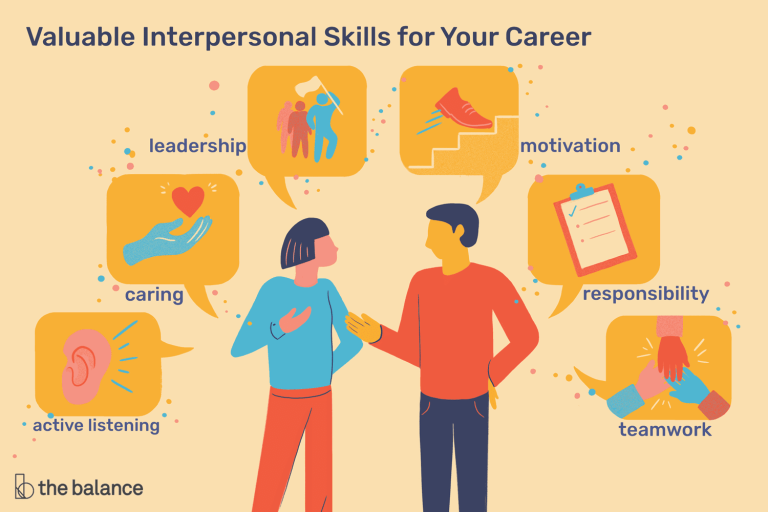Which Communication Skill is Most Useful for Medical Professionals
The most useful communication skill for medical professionals is active listening. Active listening is essential for understanding patient concerns and providing effective care.
Medical professionals who are adept at active listening can create a trusting and supportive environment for patients, leading to better outcomes. Strong communication skills are vital in the medical field as they enable healthcare professionals to establish rapport, gather accurate information, and deliver information effectively.
This article explores the importance of effective communication in healthcare, focusing on the significance of active listening. By mastering this skill, medical professionals can build strong relationships with patients, improve patient satisfaction, and enhance overall care delivery.
Enhancing Patient Care Through Communication Skills
Enhancing patient care can be achieved through effective communication skills, particularly active listening. By attentively listening to patients, medical professionals can gain valuable insights into their concerns, symptoms, and needs, allowing for more accurate diagnoses and personalized treatment. Alongside active listening, empathy and understanding play a crucial role in fostering a supportive patient-provider relationship.
Demonstrating empathy helps medical professionals connect with patients on a deeper level, building trust and alleviating anxiety or fear. Additionally, non-verbal communication, such as maintaining eye contact and using appropriate body language, further enhances the quality of patient care. Non-verbal cues can convey empathy, reassurance, and professionalism, promoting a positive and comforting environment for patients.
By honing these communication skills, medical professionals can improve patient satisfaction, adherence to treatment plans, and overall health outcomes.
Building Trust And Rapport With Patients
Building trust and rapport with patients is crucial for medical professionals. Clear and concise communication plays a vital role in achieving this. By establishing a professional and caring demeanor, healthcare providers can make patients feel comfortable and confident in their care.
Adapting communication styles to different patients is also important, as each individual may have unique needs and preferences. Using language that is easily understood, avoiding medical jargon, and actively listening to patients can foster a sense of trust and encourage open dialogue.
Effective communication is not only beneficial for establishing strong patient-provider relationships but also for ensuring accurate diagnosis and treatment. Medical professionals must continuously hone their communication skills to provide the best possible care and improve patient outcomes.
Communicating Effectively With Colleagues
Effective communication is vital for medical professionals when collaborating and working with colleagues. The skill of clear and accurate documentation ensures that important information is conveyed precisely. Consistency and timeliness in communication are essential to ensure smooth workflow and avoid any misunderstandings.
Having the ability to articulate thoughts and ideas concisely enables effective teamwork and problem-solving. Active listening and giving feedback enables colleagues to understand each other better and fosters a supportive work environment. Building strong relationships through open communication channels is crucial for effective collaboration and enhances patient care.
With these communication skills in place, medical professionals can work together seamlessly, providing the best possible care for their patients.
Addressing Language Barriers In The Medical Setting
Medical professionals need to effectively address language barriers in the medical setting to ensure quality care. Utilizing professional interpreters is crucial for accurate communication with patients who speak different languages. Cultural sensitivity and awareness are essential to understanding and respecting diverse backgrounds.
By using clear and simple language, medical professionals can ensure that information is easily understood by all patients. This helps to prevent misunderstandings and ensures that patients receive the necessary care and information. In the medical field, effective communication is crucial in building trust and providing comprehensive care for all patients.
Handling Difficult Conversations
Handling difficult conversations is a crucial communication skill for medical professionals. Breaking bad news with sensitivity requires empathy and compassion. Addressing patient concerns and fears shows support and understanding. Managing conflict and disagreement promotes effective problem-solving and teamwork. Effective communication in these situations helps build trust and confidence between medical professionals and patients.
It allows for open dialogue, ensuring patients feel heard and respected. By actively listening and providing clear and concise information, medical professionals can navigate difficult conversations with professionalism. This skill not only enhances patient satisfaction but also contributes to better patient outcomes.
With proper training and practice, medical professionals can master the art of handling difficult conversations and become more effective in their roles.
Utilizing Technology For Effective Communication
Effective communication is crucial for medical professionals, and technology plays a vital role in enabling this. The use of electronic health records streamlines communication by providing easy access to patient information. Telemedicine allows physicians to remotely diagnose and treat patients, overcoming geographical barriers.
Secure messaging platforms enhance communication by providing a private and efficient channel for sharing patient data. Additionally, remote collaboration and consultation tools enable healthcare providers to seek advice from colleagues and specialists, improving patient care outcomes. By utilizing technology, medical professionals can communicate effectively, improving the overall quality of healthcare delivery.
With electronic health records, telemedicine, secure messaging platforms, and remote collaboration tools, healthcare professionals can provide efficient and effective care to their patients.
Continuous Improvement And Training In Communication Skills
Continuous improvement and ongoing training in communication skills are crucial for medical professionals. Reflecting on past experiences allows them to learn valuable lessons. Seeking feedback from colleagues and patients helps in identifying areas for improvement. These professionals implement these suggestions to enhance their communication abilities.
Through proactive education and training programs, medical practitioners stay updated and learn new techniques. By continually refining their communication skills, they can effectively engage with patients, understand their needs, and deliver quality care. Improved communication leads to better patient outcomes and satisfaction.
As medical practices evolve, it is essential for professionals to remain open to development and growth in their communication skills. They should embrace ongoing education programs to ensure they can communicate effectively in a healthcare setting.

Credit: www.usa.edu
Frequently Asked Questions On Which Communication Skill Is Most Useful For Medical Professionals
What Are The Communication Skills For Healthcare Professionals?
Communication skills are crucial for healthcare professionals. They need to effectively convey information to patients, colleagues, and other healthcare providers. Good listening skills, empathy, and clear explanations are essential. Verbal and non-verbal communication should be practiced. Active listening allows professionals to understand patients’ concerns and provide appropriate care.
Healthcare providers should show empathy, making patients feel heard and understood. Using simple language and avoiding medical jargon ensures clear explanations. Non-verbal cues like eye contact and body language reassure patients. Building trust is vital in healthcare communication. Professionals should be respectful and maintain confidentiality.
Effective communication skills enhance patient satisfaction, adherence to treatment plans, and overall healthcare outcomes.
Why Communication Skills Is Important For Healthcare Professionals?
Effective communication is crucial for healthcare professionals because it ensures the delivery of quality care. By having strong communication skills, healthcare professionals can effectively coordinate with patients, colleagues, and other healthcare providers. This enables the exchange of critical information, such as medical history, symptoms, and treatment plans, leading to accurate diagnoses and appropriate care.
Additionally, communication skills also contribute to establishing trust and rapport with patients. Healthcare professionals who can listen attentively, empathize, and explain medical procedures in clear and concise terms build a positive patient-provider relationship. This, in turn, promotes patient satisfaction, compliance with treatment, and overall better health outcomes.
Moreover, effective communication plays a vital role in promoting patient education and empowerment. When healthcare professionals can effectively convey information about preventive measures, lifestyle changes, and medication instructions, patients are better equipped to manage their own health. Overall, strong communication skills are crucial for healthcare professionals to provide safe, effective, and patient-centered care.
What Are The 4 Types Of Communication In Healthcare?
The four types of communication in healthcare are verbal, nonverbal, written, and visual. Verbal communication involves using words to convey information between healthcare professionals and patients. Nonverbal communication encompasses gestures, body language, and facial expressions, which can enhance or contradict verbal messages.
Written communication involves exchanging information through documents, such as medical charts, reports, and emails. Visual communication includes the use of visuals, such as diagrams, charts, and images, to convey information. These communication types play a crucial role in effective healthcare delivery, ensuring that patients understand their diagnosis, treatment plans, and any necessary instructions.
Effective communication helps build trust, improves patient satisfaction, and ensures accurate and timely healthcare services. So, healthcare professionals should pay attention to all four communication types for comprehensive care delivery.
What Is The Most Used Communication Skill?
The most commonly used communication skill is listening. Effective communication requires active listening and understanding, which involves paying attention to both verbal and nonverbal cues. By listening attentively, we can gather information, comprehend messages, and establish rapport with others. Good listening also helps in avoiding misunderstandings, resolving conflicts, and building stronger relationships.
It shows respect and empathy towards others’ perspectives, fostering effective collaboration and teamwork. Active listeners engage, clarify, and respond appropriately to ensure clear communication. They avoid interrupting, making assumptions, or jumping to conclusions. Listening enables effective problem-solving, improved productivity, and better decision-making in both personal and professional settings.
Conclusion
To sum up, effective communication is crucial for medical professionals in their everyday practice. Whether it’s listening actively to patients’ concerns, providing clear explanations, or collaborating with colleagues, strong communication skills can make a significant difference in patient outcomes and overall satisfaction.
Empathy and understanding are paramount, as they foster trust and a sense of connection, enabling patients to feel cared for and supported. The ability to adapt communication styles to different individuals and situations is also vital for effective interactions. Moreover, healthcare professionals who prioritize communication can better alleviate anxiety, ease uncertainties, and improve patient compliance.
By continuously developing and refining their communication skills, medical professionals can enhance the quality of care provided, leading to better patient outcomes and a more fulfilling healthcare experience. Let us strive to foster a culture where communication is valued as an integral part of medical practice.




